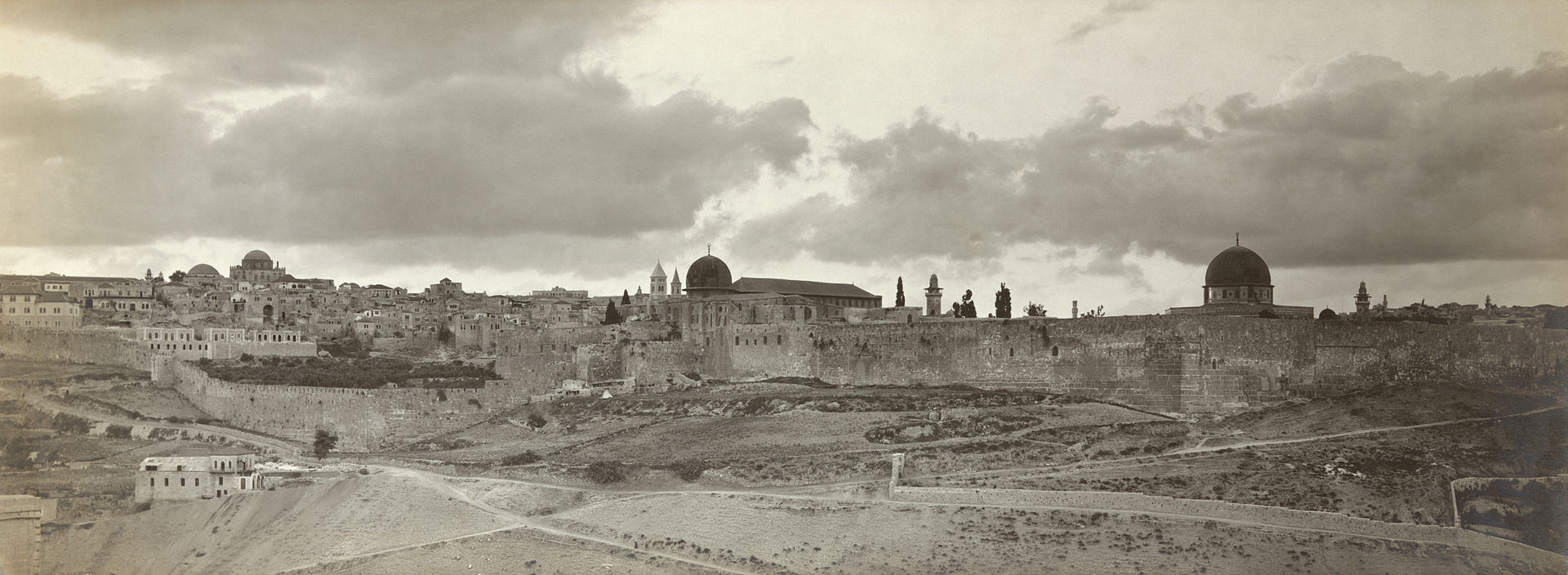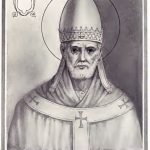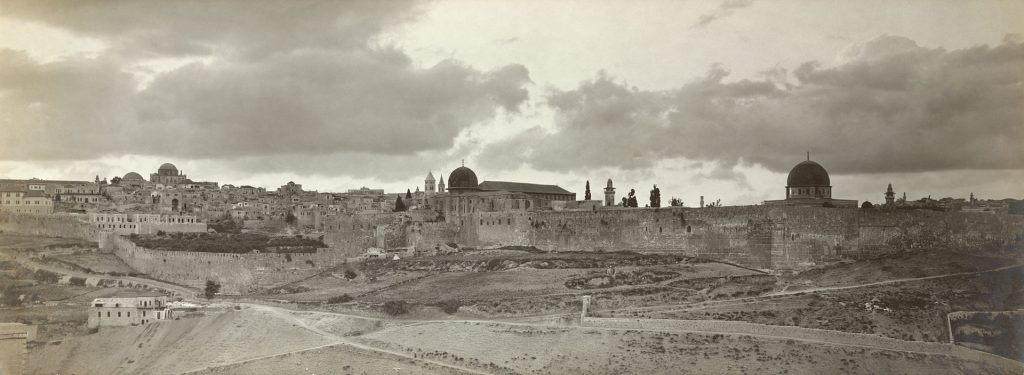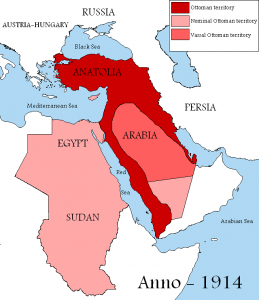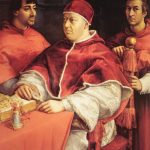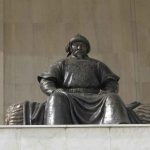History, Holidays & Observances on December 11
Today: Pope Damasus organizes the Bible in 382; Britain conquers Jerusalem; Alcoholics Anonymous; Nazi Germany does FDR a favor and declares war on the U.S.; Christmas Music . . .
And more . . .
 Holidays & Observances on December 11
Holidays & Observances on December 11
Feast of Pope Damasus I – When you pick up a Holy Bible and see the choices made by early theologians as to what books were to be included as divinely inspired and what were to be excluded from the Bible as inauthentic, you are reaching across time back to the 4th century pontiff, Pope Damasus I.
Emperor Constantine’s Edict of Milan legitimized Christianity throughout the Roman Empire in 313 A,D. Emperor Theodosius I‘s Edict of Thessalonica in 380 AD, made Nicene Christianity the Empire’s state religion. In between those two events, in 366 A.D., Pope Damasus I succeeded to the papacy, though it was not without controversy. Two different groups of electors had elected different Popes, Damasus being one. Damasus’s enemies, likely falsely, accused him of adultery and gave him the nickname of “Auriscalpius Matronarum, the ‘ladies’ ear-scratcher.'” Further, they accused him of sending thugs to violently assault supporters of the “anti-pope.” In the end, Damasus emerged as the clear choice for pontiff, having widespred support for his papacy among the early Church leaders.
Pope Damasus I most important contributions came in 382 AD. when he convened the Council of Rome that determined the canon or official list of Sacred Scripture. The Pope became close to one of the attendees at the Council, St. Jerome, and retained him as his personal secretary, commissioning Jerome to to revise the available Old Latin versions of the Bible into a more accurate Latin. Jerome eventually produced the Vulgate, the Latin translation still relied upon by the Catholic Church today.
Pope Damasus I’s work and then Jerome’s translations ensured full employment for over a millennium of monks, until the invention of the printing press made hand copying the Holy Bible unnecessary. “The Codex Amiatinus is the earliest surviving complete manuscript of the Latin Vulgate version of the Christian Bible. It was produced around 700 A.D in the north-east of England, at the Benedictine monastery of Monkwearmouth–Jarrow in the Anglo-Saxon Kingdom of Northumbria and taken to Italy as a gift for Pope Gregory II in 716.”
Major Events on December 11
1917 – World War I: Britain captures Jerusalem From the Ottoman Empire.
By the mid-17th century, the combination of the Industrial Revolution and the Enlightenment in the West left Islamic countries largely unable to compete militarily or scientifically. Still, it would not be until WWI that the great Islamic power of the past four centuries, the Ottoman Empire, was defeated by the West. Moreover, that defeat was one of the critical events in the formation of modern Israel as a Jewish homeland.
In 1915, the Ottoman Empire controlled most of the Middle East (see map) while Britain and France built and controlled the Suez Canal, linking the Mediterranean Sea and the Red Sea. The Ottoman Empire joined with the Central Powers during World War I and began an offensive in 1915 aimed at capturing the Suez Canal. Britain successfully defended, then, in 1916, began the Sinai and Palestine campaign aimed at capturing the Ottoman holdings in the Middle East. By 17 November, 1917, the Battle for Jerusalem had begun, and by 8 December, the defeated Ottoman Forces withdrew from the city rather than defend it against a siege. On this day in 1917, British Commander Field Marshall Edmund Allenby “made his formal entry into Jerusalem on foot through the Jaffa gate instead of by horse or vehicles to show his great respect for the holy place.” WWI would continue for another year. The war’s end also marked the destruction of the Ottoman Empire.
During the 18th century, growing antisemitism in Europe, capped by the Dreyfus Affair in 1890’s France, led the Austro-Hungarian journalist Theodor Herzl to the conclusion that Jews needed to reestablish their homeland in Israel. Thus the Zionist movement was born and, by the time of Allenby’s victory in WWI, was already in full swing.
Moreover, only a few weeks prior to the start of the Battle of Jerusalem, the British Foreign Secretary had issued the Balfour Declaration, stating that “His Majesty’s government view with favour the establishment in Palestine of a national home for the Jewish people, and will use their best endeavours to facilitate the achievement of this object, it . . .” Thus the British victory and acquisition of the territory it would refer to as “Palestine,” coupled with the Balfour Declaration, “greatly increased popular support for Zionism within Jewish communities worldwide. And three decades later, modern Israel was born.
1934 – An alcoholic takes his last drink.
Normally, the date an alcoholic takes his last drink and then goes dry for the remainder of his life is a personal milestone, not one of larger significance. Not so today.
The alcoholic in this case was Bill Wilson. Bill was a very smart man. He completed law school and had a very promising career on Wall St. But he was also an inveterate alcoholic and it eventually destroyed his life. He tried to quit, often, but within a matter of days he would fall off the wagon every time. At the age of 39, his body was breaking down and his days were numbered. That is when he got a visit from an old drinking buddy, Ebby Thacher, who told Wilson that he had “got religion” and that through it, he was now sober. He introduced Wilson to The Oxford Group, a Christian group modeled on the first-century Christian community.
Wilson joined the group, attended a few meetings, but on this date in 1934, he fell off the wagon again. It would prove to be his last time. He checked himself into rehab at a hospital, and during his stay there, he experienced a spiritual epiphany. When Wilson emerged from rehab, he rejoined the Oxford Group, becoming one of its leaders.
Once the Oxford Group’s methods were refined and had helped over 100 people recover from alcoholism, the group decided to publish their work in 1939 under Bill Wilson’s name.
Alcoholics Anonymous: The Story of How More Than One Hundred Men Have Recovered from Alcoholism . . . Informally known as “The Big Book” (with its first 164 pages virtually unchanged since the 1939 edition), it suggests a twelve-step program in which members admit that they are powerless over alcohol and need help from a “higher power”. They seek guidance and strength through prayer and meditation from God or a Higher Power of their own understanding; take a moral inventory with care to include resentments; list and become ready to remove character defects; list and make amends to those harmed; continue to take a moral inventory, pray, meditate, and try to help other alcoholics recover. The second half of the book, “Personal Stories” . . . is made of AA members’ redemptive autobiographical sketches.
Out of the Oxford Group then came Alcoholics Anonymous, an organization that has helped millions of alcoholics and others to conquer their addictions. According to AA:
The hand of Alcoholics Anonymous (A.A.) extends – literally – around the globe. Today, an A.A. presence can be found in approximately 180 nations worldwide, with membership estimated at over two million. There are more than 118,000 A.A. groups around the world and A.A.’s literature has been translated into languages as diverse as Afrikaans, Arabic, Hindi, Nepali, Persian, Swahili, and Vietnamese, among many others.
1941 – World War II: Germany and Italy inexplicably declare war on the U.S., bringing America into the European theater.
It was very much at issue whether the U.S. would join the war in Europe against Nazi Germany, right up until this day in 1941, when Germany’s Herr Hitler and Italy’s Il Duce rendered the question moot by declaring war on the U.S.
Between the end of WWI in 1918 and the start of American involvement in WWII in 1941, isolationist sentiment dominated American politics. And as conflict in Europe became more likely, Congress acted to limit the foreign policy discretion of then President Franklin Roosevelt by passing a series of laws known collectively as the Neutrality Acts. Those loosened somewhat after Japan invaded China in 1937 and then Germany invaded Poland in 1939. Roosevelt was able to funnel aid to Britain and China.
The Japanese attack on Pearl Harbor, Dec. 7, 1941, was swiftly met by a U.S. declaration of war against Japan. But that did not mean the U.S. was now willing to intervene in Europe as well. To the contrary, for a few days after Dec. 7, many people, Churchill among them, feared that the U.S. would ignore Europe and expand all of its efforts and assets in a Pacific War. As John Kenneth Galbraith later stated:
When Pearl Harbor happened, we [Roosevelt’s advisers] were desperate. … We were all in agony. The mood of the American people was obvious – they were determined that the Japanese had to be punished. We could have been forced to concentrate all our efforts on the Pacific, unable from then on to give more than purely peripheral help to Britain. It was truly astounding when Hitler declared war on us three days later. I cannot tell you our feelings of triumph. It was a totally irrational thing for him to do, and I think it saved Europe.
Hitler’s decision to declare war against the U.S. on this date has never been explained. In the east, Nazi forces were being driven back by the Red Army deep inside the Soviet Union. On the Western Front, all of continental Europe had fallen, and Britain was largely contained on its island home. Germany had a treaty with Japan that required Germany to declare war against any nation that attacked Japan, but Japan was the aggressor against the U.S. The terms of the treaty were not triggered.
Seemingly as an afterthought, Hitler directed the declaration of war on the U.S. It was a critical event in history that sealed Germany’s fate. Within hours after the U.S. was notified that Germany and Italy had declared war on the U.S., Congress on this day voted unanimously to declare war on Germany and Italy. World War II was fully joined.
Notable Events on Dec. 11
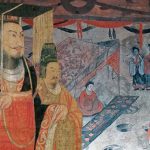 220 – Emperor Xian of Han is forced to abdicate the throne by his son Cao Cao, ending the Han dynasty. The Han dynasty, which had lasted over four centuries, was China’s Golden Age.
220 – Emperor Xian of Han is forced to abdicate the throne by his son Cao Cao, ending the Han dynasty. The Han dynasty, which had lasted over four centuries, was China’s Golden Age.
1282 – The Normans conquered England in 1066. The successors to that Normany dynasty did not succeed in conquering Wales until this date at the Battle of Orewin Bridge. In the battle, Llywelyn ap Gruffudd, the last native Prince of Wales, was killed and his head paraded through London on a spear. Wales has been joined as an appendage of England since.
1990 – The Soviet Union began to disintegrate in 1988, as unrest spread both within the country and in the satellite Communist nations. On this date in 1990, that unrest spread to Albania, where demonstrations by students and workers across the country began this day and that would ultimately lead to the fall of communism in that country..
2006 – Felipe Calderón, the President of Mexico, launches a military-led offensive to put down the drug cartel violence in the state of Michoacán. This effort is often regarded as the first event in the Mexican Drug War. Thirteen years later and it appears that the government is losing the war.
2008 – Bernard Madoff is arrested and charged with securities fraud in a $50 billion Ponzi scheme, the largest of its kind . . . not run by the U.S. government.
 Born on December 11
Born on December 11
1475 – Pope Leo X, a member of the notorious Medici family appointed to the Papacy without ever having been a priest. His reign as Pope would be controversial. On one hand, he was a great patron of the arts and it was his patronage that was behind many of the great Renaissance art works that adorn the Vatican today. On the other hand, he broke the Vatican piggy bank and significantly contributed to corrupt Church practices that led to the Protestant Reformation.
1918 – Aleksandr Solzhenitsyn, a Russian author and outspoken critic of both communism and the Soviet Union. His most famous work, the Gulag Archipelego, exposed the horrors of the Soviet gulag system.
 Died on December 11
Died on December 11
1241 – Ögedei Khan, the third son of, and successor to, Ghengis Khan. Picking up where his father left off, Ogedei continued the expansion of the Mongol empire to its greatest extent west and south. He oversaw the Mongol invasions of Europe and East Asia.
1880 – Oliver Winchester, the man who founded the Winchester Repeating Arms Company in 1866 and whose guns famously “won the West.”
Christmas Music
The First Noel is a traditional English carol from the early 19th century. It is about theAnnunciation to the shepherds and the Adoration of the shepherds, both of which are episodes in the Nativity of Jesus described the Luke 2. The Star of Bethlehem appears in the story of the Magi and in the Gospel of Matthew; but it does not appear in the story of the shepherds.
Caroling, Caroling was one of fifteen carols composed in the mid-20th century by Alfred Shaddick Burt.
https://youtu.be/SboRl-4g8y4
And for your extended listening pleasure, Bing Crosby
